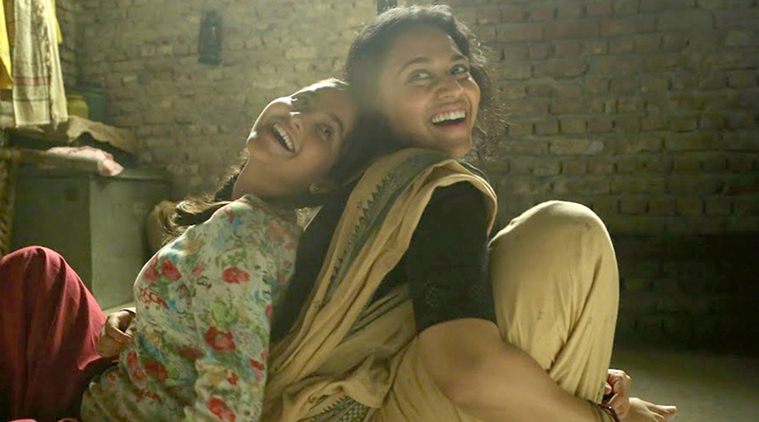 Nil Battey Sannata movie review: The film starring Swara Bhaskar has a strong message about how education can change your life. It does underline the message, but stays just short of being preachy or message-y. And leaves you with a warm glow.
Nil Battey Sannata movie review: The film starring Swara Bhaskar has a strong message about how education can change your life. It does underline the message, but stays just short of being preachy or message-y. And leaves you with a warm glow.
The title is a fallen-into-disuse Hindi phrase. Nil means zero. Bata/ Battey is a word for division. And `sannata’ is, of course, silence. Or ‘shoonya’. Zero divided by zero is equal to? Yep. Zero.
‘Matric- fail’ Chanda Sahay (Swara Bhaskar), of course, calls it `jeero’. Because the ‘z’ is a sound you can expect, more or less, from those who went to schools where the Queen’s English is taught from the get go. What drives the film’s characters to use this flavourful, salty phrase is Chanda’s daughter Apeksha (Riya Shukla), or Apu, and her sullen reluctance to learn.
Chanda works her fingers to the bone, in multiple menial-mechanical jobs, to put Apu through school. She wants big things for her only child, and said child is quite happy to occupy the back bench and get bad marks.
One of Chanda’s employers, a humane doctor (Ratna Pathak Shah) who sees Chanda as a human being, not just a work machine, helps create a situation in which mother and daughter end up getting some learning, both in a school setting and at home, both separately and together.
There are a few contrived scenes. Apu’s occasionally-overdone brashness gets her to speak rudely to her mother, and some of those lines feel like dialogues being delivered. Chanda describes herself as a ‘misrani’, a word that got me instantly nostalgic, but in her case it’s a misnomer : a ‘misrani’ is a woman who comes, cooks, leaves; Chanda is more an all-purpose housekeeper, and also works shifts in sweat-shops. And you can’t use the UP ‘misrani’ and Maharashtrian ‘bai’ interchangeably, which is what the film does. It’s a small thing, but in a film that relies on keeping things real, it jars, just a little. The colloquial ‘lalli’, used for a ‘little girl’ almost makes up for it. Almost.
Plus, if the film is set in Agra, we don’t really need to see the Taj Mahal in the backdrop. Just the flash of a famous monument can inject fatigue in a fresh film : it’s like showing us India Gate and the Red Fort in every Delhi film. No need. Not anymore.
But there’s such inherent sweetness in the premise, and the performances are so life-like that you forgive these tiny things. The interactions between the school-friends– especially the boy who loves maths, and teaches both mother and daughter to stop being scared by it—and the interplay between Bhaskar and Shah, who is on a roll these days, are all engaging.
Any parent can recognize this mix of feelings—loving their child to distraction, and climbing walls due to frustration, caused by the self-same child—both at the same time. Bhaskar does a good job of the bewilderment, annoyance and plain wordless affection that comes from a deep maternal place. The little girl is appropriately scrappy and needy. These two are the mainstay of the film. But the one who helps add a well-judged layer is the school principal, played by the reliably excellent Pankaj Tripathy.
‘Nil Battey Sannata’ has a strong message about how education can change your life. It does underline the message, but stays just short of being preachy or message-y. And leaves you with a warm glow.
Cast: Swara Bhaskar, Riya Shukla, Pankaj Tripathy, Ratna Pathak Shah
Director: Ashwini Iyer Tiwari
Three stars
Entertainment Videos by Indian Express